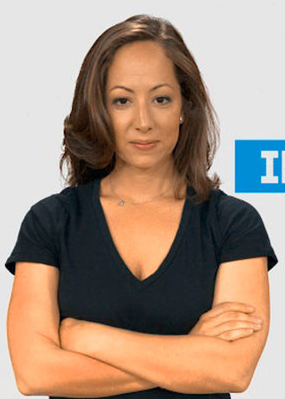From RT's "In the Now": War in Syria can only end if President Bashar al-Assad is REMOVED?!
The following is some of the transcript from the latest episode of 20 March of RT's In The Now entitled "Trump Card". In the first part program host Host Annissa Naouai interviews Doctor Theodore Karasik a senior advisor of Gulf State Anaytics to discuss how the Syrian conlict may develop now that Russia has decided to withdraw most of its forces from Syria.
Much of the interview consists of a long ostensible explanation by Dr. Karasik of Saudi Arabia's actions in the conflict. The transcript of the end of the interview concludes in the paragraphs immediately below. Below, at the end of the article, is a critical response to that interview posted to that In the Now page.
Transcript of the conclusion of Annissa Naouai's interview with Dr. Theodore Karasik
04:18 Annissa Naouai (AN): Critics in the West were just pointing out how this was all just an attempt to bolster Assad. Putin's gotten in and out. How is Bashar al-Assad really feeling about Russia leaving Syria? You know, I mean, Syria doesn't really have many friends out there world at the moment.
04:32 Dr. Theodore Karasik (TK): I think that the Assad government is very interested in what happens next clearly. Russia is telling Assad that there must be movement on the political front in order to rectify the problems within Syria today and to come to a new state entity, if you will, that will govern the Syrian state.
This point is something that Moscow has driven home since the entry of Russia into Syria six months ago – that the political solution must come first and dealing with Islamic State in total, particularly in Raqqa, comes second. You can't have it the other way around.
Therefore, you see Russia pushing Assad to go along with this settlement discussion that's ongoing in Geneva. The big question, of course, is what about Assad's other friends, particularly in Tehran – and the Iranian reaction is this one that seems very positive, so far, but we need to be very careful about the dynamics within Iran and how various schools of thought will look at Russia's latest move and what that means for the settlement of Syria in the coming months and throughout the rest of the year.
06:07 AN: What about other key players like Saudi Arabia? Are they going to use this as an opportunity to make some moves? I assume in Tehren that could possibly be one of the options that is being discussed.
06:21 TK: I think what the Saudis are interested in the most is the protection of their interests in the Levant. I think that it's clear that Riyadh and other allies of the Kingdom of Saudi Arabia were taken by surprise with the Russian announcement of quote unquote 'withdrawal'. I think Riyadh also recognises that this gives an opportunity for a diplomatic solution. I don't think Riyadh wants to use the Islamic military alliance completely in full operation within the Levant, but, if push comes to shove, they will.
So I think that this is a moment for Saudi Arabia to decide how best to proceed diplomatically on trying to find a solution to Syria where Assad does leave and I think that all parties are beginning to agree that President Assad's days are numbered in his current position.
07:23 AN: Doctor Theodore Karasik, a senior advisor at Gulf State Analytics, thanks so much for being In The Now.
Response to the above Interview posted to "In the Now"
I thought that Russia's stance on President Bashar al-Assad is that only the Syrian people were entitled to decide on whether or not he was to be their President and for how long he would remain President. All the evidence, of which I am aware, shows that, even with all the killing, destruction and other hardships faced by Syrians since March 2011, the Syrian President remains immensely popular. In fact, he enjoys far more popularity than the leaders of purported democracies of the United States, Britain, France, Germany, Canada, Israel and others that have criminally conspired against him. Probably the only national leader who can claim to be more popular than Bashar al-Assad is Russian President Vladimir Putin.
Syrians can count themselves lucky to have been led since March 2011 by such a capable and well-intentioned man as Bashar al-Assad.
I found outrageous the suggestion by your guest, Dr. Theodore Karasik, that a settlement of the Syrian crisis required that the Syrian President step down. By saying so, Dr. Karaz demonstrated ignorance at best, or contempt for the wishes of the Syrian people at worst.
Your failure to challenge Dr. Karasik's views is what I have come to expect of corporate mainstream 'journalists' in the West and not from RT.
Could I suggest that you look at the many interviews that the Syrian President has given to the newsmedia in recent years, including CBS's 60 Minutes of 2014, and compare his forthright and honest answers, to the most probing questions, to what was mouthed by Dr. Karasaik?
Were President Bashar al-Assad ever to find the time to appear on "In the Now" together with Dr. Karasik, he would easily be able to show him up for what he is and cut his arguments to ribbons. I wish more journalists were as capable as the Syrian President.


 Great advances this week by the Syrian army and Russian air force have broken the rebel siege of two towns, and broken their umbilical link with Turkey. But they have also revealed the truth about Western media 'journalism'...
Great advances this week by the Syrian army and Russian air force have broken the rebel siege of two towns, and broken their umbilical link with Turkey. But they have also revealed the truth about Western media 'journalism'... While the ridiculous deliberations over what style of terrorist was an acceptable participant in the Geneva talks may have been a vexing spectacle for Syrians, and the attention paid by the Western media to the ‘High Negotiations Committee’ an affront to their senses, it didn’t really surprise anyone.
While the ridiculous deliberations over what style of terrorist was an acceptable participant in the Geneva talks may have been a vexing spectacle for Syrians, and the attention paid by the Western media to the ‘High Negotiations Committee’ an affront to their senses, it didn’t really surprise anyone.
Recent comments